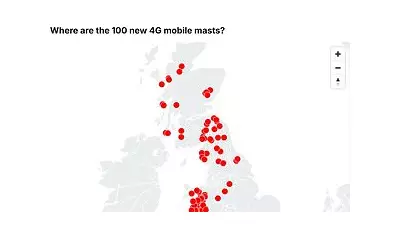
In a seismic shift that could redefine the British broadcasting landscape, two of the UK's television giants are preparing to break from tradition. ITV and Sky are reportedly in advanced discussions to sell channel slots directly through ITV's streaming platform, ITVX.
The End of Traditional Television?
This revolutionary move would allow viewers to access channels like ITV2, ITV3, and potentially Sky's portfolio through the streaming service rather than traditional broadcast methods. The strategy represents the most significant step yet in the industry's migration from scheduled programming to on-demand viewing.
What This Means for Viewers
The implications for British households are substantial:
- Simplified viewing experience - Access to both live channels and on-demand content in one place
- Reduced reliance on traditional TV packages - More flexibility in how consumers pay for content
- Enhanced personalisation - Better recommendations across both live and streamed content
- Device flexibility - Watch traditional channels on smartphones, tablets, and smart TVs
The Business Behind the Shift
Industry analysts see this as a strategic response to the accelerating decline of traditional television viewing, particularly among younger demographics. With streaming services capturing an ever-increasing share of viewing time, broadcasters are seeking innovative ways to maintain relevance and revenue streams.
"This isn't just about keeping up with trends—it's about survival," said one media insider. "The companies that thrive will be those that successfully bridge the gap between broadcast and streaming."
The Future of Advertising
The move also presents significant opportunities for targeted advertising. By combining traditional channel viewing with streaming data, broadcasters could offer advertisers more sophisticated targeting capabilities than ever before, potentially commanding premium rates for more effective campaigns.
While neither ITV nor Sky has made an official announcement, industry sources confirm that technical and commercial discussions are well advanced, with a potential launch expected within the next broadcast year.





